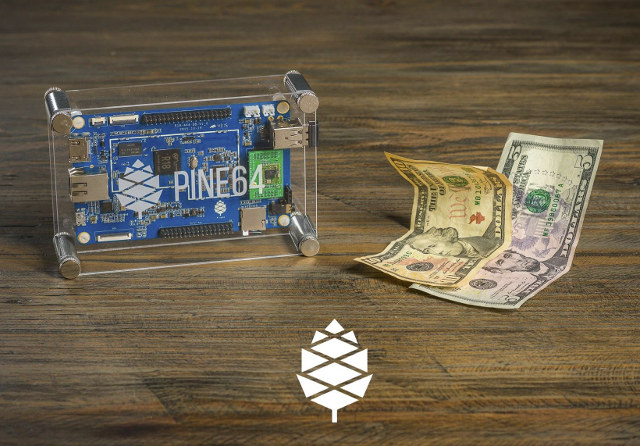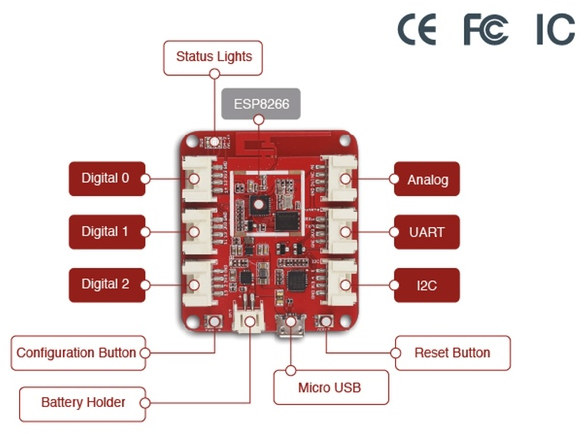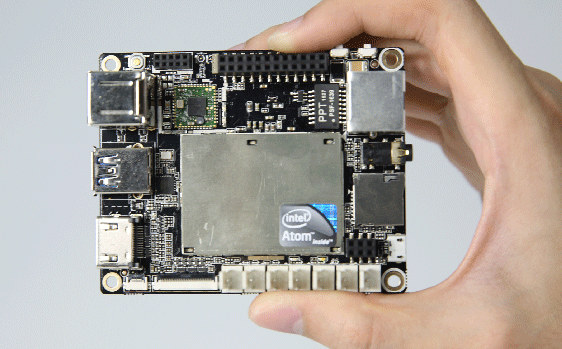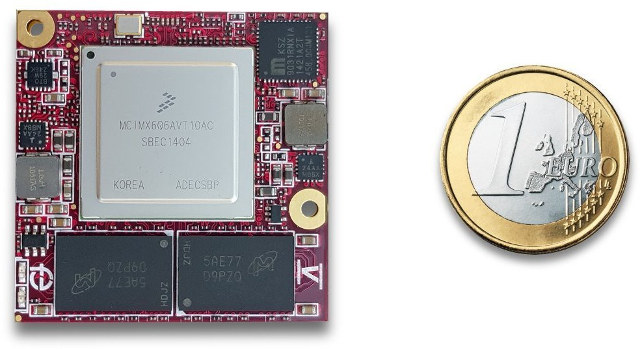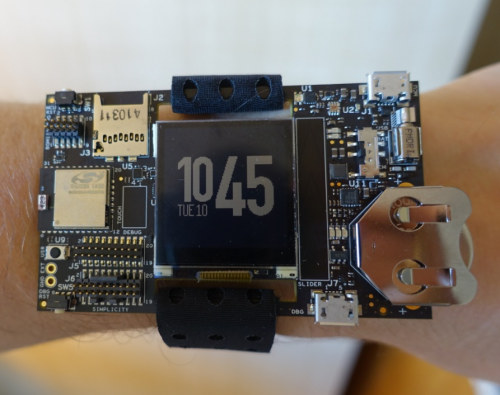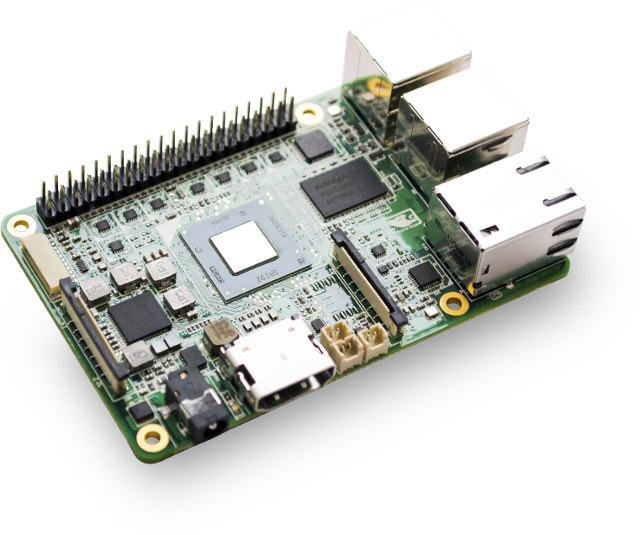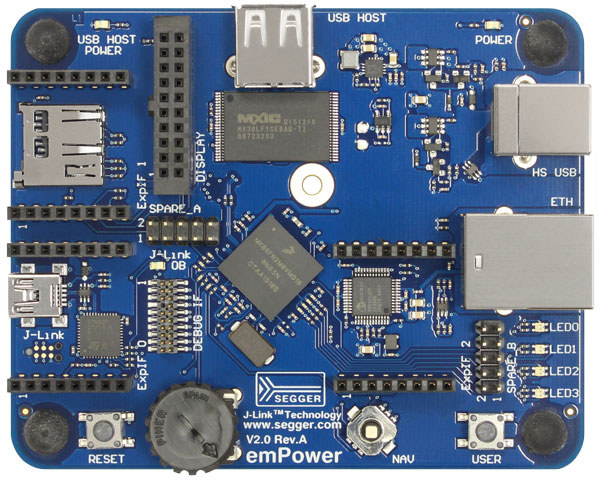It looks like Next Things’ C.H.I.P computer with Allwinner R8 processor will soon have a big brother with PINE A64 board powered by Allwinner R18 / A64 quad core Cortex A53 processor, and made by a US start-up also called PINE 64. PINE A64 and PINE A64+, a version with more memory and features, will have the following specifications: SoC – Allwinner R18 (based on Allwinner A64?) quad core ARM Cortex A53 processor @ 1.2 GHz with Mali-400MP2 GPU System Memory PINE64 – 512 MB DDR3 PINE64+ – 1 GB DDR3 Storage – micro SD slot supporting up to 256 GB Video Output HDMI 1.4 up to 4K resolution @ 30 Hz PINE64+ only – 4-lane MIPI DSI connector and touch panel connector Video Codecs – H.265 up to 4K Audio – HDMI, 3.5 mm headphone jack Connectivity PINE64 – Fast Ethernet + optional WiFi & Bluetooth module PINE64+ – […]
Wio Link is an ESP8266 Board Designed to Make IoT Projects Easier (Crowdfunding)
There are already plenty of board or modules based on Espressif ESP8266 WiFi SoC, but if you don’t like soldering, or would rather avoid breadboards and some cables for your or your kids’ projects, Wio Link may be interesting, as all you need to is to connect Grove modules required for your applications to get started, and Seeed Studio also took care of the low level software part and a drag-and-drop mobile app is provided, so software programming has been made easy too. Wio Link hardware specifications: SoC – Espressif ESP8266EX Tensila SoC Storage – 4MB flash Connectivity – 802.11b/g/n WiFi, with WEP/TKIP/AES encryption support Expansion – 6x Grove connectors: 3x digital, 1x analog, 1x UART and 1x I2C (3.3V I/Os) Power Supply 5V via micro USB port 3.4 ~ 4.2V via external battery Output DC Current – 1000mA MAX Charge Current: 500mA MAX Dimensions – 55mm*48mm Weight – 26g […]
LattePanda is a $79 Arduino Compatible Intel Atom x5 Board Running Windows 10 (Crowdfunding)
I feel like I’m living in another world after writing a title combining Arduino, Intel and Windows 10, but that’s exactly what LattePanda is promising with a development board featuring both an Intel Atom x5-Z8300 processor and an Atmel AVR MCU, and Windows 10 as the operating system. LattePanda board specifications: SoC – Intel Atom x5-Z8300 “Cherry Trail” quad core processor @ 1.44 GHz (Burst frequency: 1.84 GHz) with Intel Gen8 HD graphics @ 500 MHz System Memory – 2 to 4 GB DDR3L Storage – 32 or 64 GB eMMC, micro SD slot MCU – Atmel Atmega32u4 micro-controller Video Output / Display – HDMI, and MIPID DSI connector Audio I/O – HDMI, 3.5mm audio port Connectivity – Ethernet, WiFi and Bluetooth 4.0 USB – 1x USB 3.0 port, 2x USB 2.0 host ports, 1x micro USB port for power Serial – 1x from Intel SoC, 1x from Atmel MCU […]
iMX6 TinyRex Module and Development Board Support HDMI Input in Linux (Video Demo)
A couple of years ago, I wrote about iMX6 Rex open source hardware project combining a Freescale i.MX6 SoM and baseboard that aimed a teaching hardware design (schematics and PCB layout). I had not followed the project very closely since then, until I watched a video showcasing HDMI input capabilities in Linux using the new version of the module and baseboard called i.MX6 TinyRex. i.MX6 Tiny Rex module specifications: SoC – Freescale iMX6 processor up to 1.2GHz and 4 cores System Memory – Up to 4GB DDR3-1066 (533MHz) Storage – EEPROM Connectivity – 10/100/1000 Mbps Ethernet PHY I/Os via 3 board to board connectors: Display / Video Output 1x HDMI (up to QXGA 2048×1536) 1x LVDS (up to WUXGA 1920×1200) 1x 20-bit parallel LCD display (up to WXGA 1366×768) or 1x Video Input (CSI) 1x MIPI DSI differential display output (up to XVGA 1024×768) Video Input 1x 20-bit parallel video input […]
Thunderboard Wear is a $75 Smartwatch Development Board by Silicon Labs
A few days ago I watched an ARMDevices.net’s video about an ARM’s smartwatch reference design running mbed OS 3.0, powered by a Silicon Labs EFM32 Giant Gecko Cortex M3 MCU, and promising up to 2 months battery life on a 160 mAh battery. While I could not find the full details about the reference design, I noticed Silicon Labs also launched a development board called Thunderboard Wear, based on the same platform, just quite bigger, and still wearable… (Sort of) Thunderboard Wear specifications: MCU – Silicon Labs EFM32GG995F1024 ARM Cortex-M3 MCU up to 48 MHz with 128 kB RAM,1 MB Flash External Memory – 256 kB external SRAM External Storage – micro SD card slot Display – 128×128 pixel Memory LCD from Sharp Connectivity – Bluetooth 4.1 smart module (Silicon Labs BGM111), upgradeable to Bluetooth 4.2 Sensors Ambient Light Sensing (ALS) and Proximity/Gesture via Silicon Labs Si1141. Optical hear-rate monitoring […]
Mediatek LinkIt Smart 7688 and Smart 7688 DUO Boards Run OpenWRT for IoT Applications
MediaTek LinkIt is a collection of development platforms designed for the prototyping of wearables and Internet of Things (IoT) devices, and last year they started with LinkIt ONE board based on Mediatek MT2501 “Aster” micro-controller and featuring WiFi, Bluetooth, GPSD and GSM/GPRS connectivity. Mediatek Labs has now launched two new LinkIt board, namely LinkIt Smart 7688 and LinkIt Smart 7688 DUO, both powered by Mediatek MT7688 MIPS processor and running OpenWRT, with the latter also adding an Atmel ATmega32U4 for Arduino compatibility. LinkIt Smart 7688 Board LinkIt Smart 7688 is then the simpler of the two with the following specifications: Processor – Mediatek MT7688AN MIPS24KEc processor @ 580 MHz with WiFi System Memory – 128MB DDR2 RAM. Storage – 32MB flash + micro SD slot Connectivity – 1T1R Wi-Fi 802.11 b/g/n with chip antenna and I-PEX conector USB – 1x micro USB host port, 1x micro USB port for power […]
UP Board Gets 2GB RAM and 32GB Storage Option, Linux Port in Progress
The UP Board is a Raspberry Pi like board with an Intel Atom processor that’s currently on Kickstarter with a few hours left, and it has just reached its 100,000 Euros stretch goal meaning that beside the 16GB storage / 1 GB version, a version with 32Gb storage and 2GB is now offered. The company also showed their progress with the implementation Debian based Ubilinux on the Intel Atom x5-Z8350 board. That means the specifications have now been updated: SoC – Intel Atom x5-Z8350 “Cherry Trail” quad core processor @ 1.44 GHz (Burst frequency: 1.84 GHz) with Intel Gen8 HD graphics @ 500 MHz System Memory – 1 GB or 2 GB DDR3L-1600 Storage – 16 or 32 GB eMMC Video Output / Display – HDMI, DSI connector Audio I/O – HDMI Connectivity – Gigabit Ethernet USB – 4x USB 2.0 host ports, 1x USB 2.0 pin header, 1x micro […]
Segger emPower is an embOS RTOS Evaluation Board with a J-Link OB Debug Interface
Segger, a company specializing in embedded software and hardware debugging tools, has recently launched Segger emPower, an evaluation board powered by Freescale Kinetis K66 Cortex M-4 MCU and including a J-LInk OB debug probe (JTAG/SWD), specially designed to evaluate the company’s embOS real-time operating system. emPower board hardware specifications: MCU – Freescale Kinetis K66 (MK66FN2M0VMD18) ARM Cortex M4F MCU @ 180MHz with with 256KB SRAM and 2MB flash memory Storage – 1Gbit NAND Flash + micro SD card connector Display I/F – 20-pin display adapter connector (5 V/3.3 V, SPI, PWM for backlight control) for small TFT displays Connectivity – Fast Ethernet USB – 1x USB device, 1x USB host (Full speed) Debugging On-board debug probe J-Link-OB with drag & drop (STM32F072, mini A/B-type connector); SWD/SWO only, no CDC/VCOM port support External debug interface (19-pin Cortex-M) including trace Expansion 3x Sensor Expansion Interface Devices (SExI) headers providing I2C, SPI buses, […]


